2024 Wet Lab Descriptions
Saturday Tracks: Avian, Aquatics, and Zoo
Sunday Tracks: Reptile, Small Mammal, and Wildlife
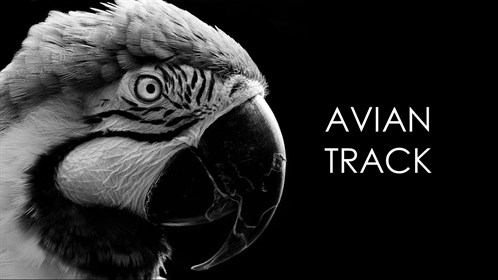
Avian Handling & Sampling: Dr. Sharman Hoppes
Dr. Hoppes will describe and demonstrate skills related to physical examination and common sampling methods for avian species. Students will practice proper restraint, weighing, physical examination, IM/SQ injections, and venipuncture on cockatiels and Quaker parrots. This lab is capped at 20 participants.
Raptor Medicine: Dr. Melissa Hill and Master Falconer John Karger
Discuss the legalities and ethics for raptors, general anatomy, safety and handling, intubating birds, IM/SQ injections, catheter placement for IV and IO sites, intramedullary pinning, bandaging, splinting, and housing in a hospital setting. This lab is capped at 30 participants.
Avian Orthopedic Surgery: Dr. Stephen Fronfield and Dr. Kimberly Roset
Dr. Fronefield and Dr. Roset (both from Animal and Bird Clinic in Sugar Land, TX) will be teaching us the basics of avian orthopedic surgery. Fractures and joint injuries are common issues that a veterinarian working with birds will have to face. Students will be shown common procedures and then will have the opportunity to practice on their own cadaver. Thanks to a donation from IMEX, students will have the opportunity to practice with pins, drills, Acrylx, handchucks, and more! This lab is capped at 25 people.
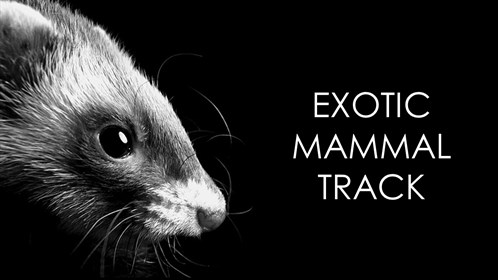
Ferret Ultrasound: Dr. Kimberly Doll, Dr. Jillian Villalva, and Dr. Gwen Levine
Ultrasonography is an important skill to have especially in small mammals, especially Ferrets, who can get lymphoma, adrenal disease, and insulinomas very commonly. This lab will teach Ferret handling and restraint along with ultrasonography techniques to help the clinician image these animals. This lab is open to everyone and is capped at 30 participants.
Small Mammal Dentistry: Dr. Todd Riggan & Dr. Stephen Fronefield
Due to the hypsodont dentition of our small mammal companions, dental disease is a common ailment of Guinea Pigs, Chinchillas, and Rabbits, leading to oral discomfort and GI issues. Working with these little critters requires a radically different approach than the dentals of dogs and cats. In this lab, students will perform a dental exam on a small mammal cadaver and learn the common dental procedures performed in these tiny mouths. This lab is capped at 30 participants, giving priority to ZEW and Dental Club students.
Guinea Pig Ovariohysterectomy: Dr. Jillian Villalva and Dr. Kimberly Doll
Spaying guinea pigs can have a variety of health benefits such as preventing ovarian cysts and subsequent neoplasia to preventing pregnancies in a multi-individual housing setting. Performing spay procedures in small mammals can be difficult and due to the extensive GI tract, poor tolerance of anesthesia, and post-operative complications due to the height of guinea pigs is often avoided by many practitioners. In this lab, we will discuss the benefits of alternative methods from traditional ventrally approached ovariohysterectomies, and discuss the risks and benefits of performing routine spays in this species. Students will be taught how to perform an ovariectomy using a dorsal flank approach and each student will be given one guinea pig cadaver to work with. This lab is capped at 30 participants and restricted to 2nd year students and above.
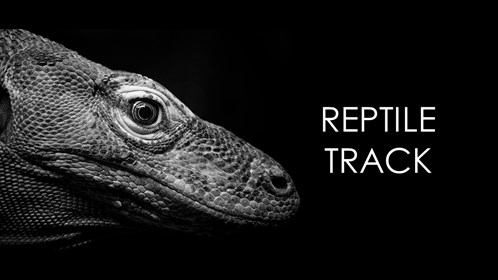
Snakes and Lizards: Handling, Husbandry and Medicine: Dr. Rob Coke, Dr. Susan Baley, and Audrey Koepp
Our clinician for the snakes and lizards wet-lab is Dr. Rob Coke, the director of veterinary care at the San Antonio Zoo and medical director of the Species Survival Plan for Komodo dragons. Dr. Coke will provide a brief lecture over general reptile medicine and husbandry, as well as anatomy and physiology. The blue-tongued skink, green iguana, Argentine tegu, bearded dragon, and a variety of snake species will be used to learn proper restraint, physical exams, venipuncture, and other common medical procedures. Students will also learn how to practice safe medicine with venomous snakes by practicing with our non-venomous species. This lab is capped at 40 students.
Amphibian Husbandry, Medicine, and Anesthesia: Dr. Kimberly Roset and Audrey Koepp
The Amphibian Medicine and Husbandry wet-lab is taught by exotics veterinarian Dr. Kimberly Roset at Animal and Bird Clinic in Sugar Land, Texas, and Audrey Koepp, a Texas A&M graduate who specializes in the captive breeding of amphibians and consults with zoos and collectors all over the country. We will use nine different species of live animals, including Colorado river toads, tiger salamanders, red eyed tree frogs, the Yellow-banded poison dart frog and more. Expect to learn about proper handling and restraint of amphibians, how to conduct a thorough physical examination, utilize safe anesthesia techniques, and perform common procedures like venipuncture and obtaining vitals. Amphibian husbandry and care will also be covered in this wet-lab. This lab is capped at 40 students.
Reptile Anatomy and Necropsy: Dr. Rob Coke, Dr. Susan Baley, and Audrey Koepp
Dr. Rob Coke, Audrey Koepp, and Dr. Susan Baley will lead the reptile necropsy. Dr. Rob Coke and Audrey Koepp led the reptile and amphibian restraint and handling labs and Dr. Susan Baley is an associate veterinarian at Gulf Coast Veterinary Specialists actively pursuing her board certification in Avian medicine. We will have a variety of cadavers available for necropsy including venomous snakes. General anatomy and any observed pathology in the specimens will be covered during the dissection. This lab will be capped at 40 students.
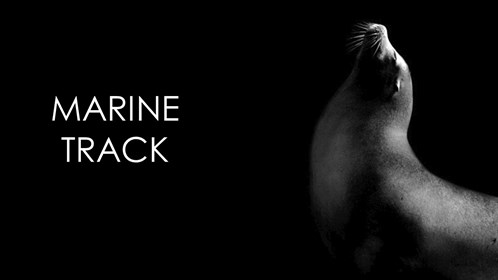
Shark and Sea Turtle Necropsy: Dr. Taylor Yaw
Students will learn about the normal anatomy and physiology of dogfish sharks and sea turtles (if available from cold stunning) by performing necropsies. Additionally, students will be educated on the husbandry and water quality essential for these species. This lab is capped at 30 students.
Fish Water Quality and Anesthesia: Dr. Taylor Yaw
Students will learn about aquatic animal anesthesia by correctly anesthetizing live fish using common anesthetic immersion agents, MS-222 and clove oil (eugenol). Students will practice safe handling of live fish, diagnostic sample collection (i.e. phlebotomy using various blood collection sites, skin scrapes, gill clip), and perform routine diagnostics (blood smears, direct fecal smear, skin scrape cytology, and ultrasound) imperative to aquatic animal physical exams. Additionally, students will learn the importance of water quality assessment by using water quality test kits to measure water parameters (i.e. pH, ammonia, nitrate, nitrite) vital to the health of aquatic species. This lab is capped at 30 participants.
Aquatic Animal Disease, Pathology and Necropsy: Dr. Taylor Yaw
Students will learn about the common agents causing disease in aquatic species found in US and Texas waters, including parasitic spp., ich (protozoa), anchor worms (crustacean), glochidia (parasitic larval mussels), and flukes, as well as other important bacterial spp., mycobacterium spp., viral spp., and fungal spp. Students will then apply this knowledge on fresh necropsies of recent humanely euthanized fish to observe any abnormalities/pathologic findings under microscopes. This lab is capped at 30 participants.
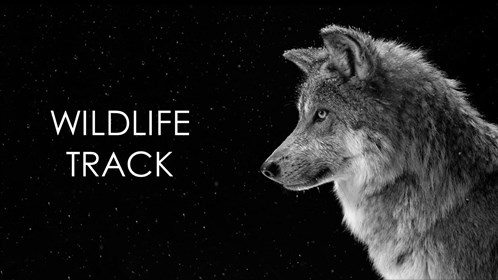
Capture and Release: Dr. Sarah Hamer
Providing health care to free-ranging bird and small mammal species poses unique challenges to the wildlife veterinarian- namely catching your patient! The research team of Dr. Sarah Hamer leads students through the ins-and-outs of humane live animal traps and mist-netting. Sunday morning handle, sample, and release your wildlife! Please wear clothing suitable for outdoor activity. This lab is capped at 18 participants.
Darting Practice: Dr. James Derr and Dr. Clayton Hilton
Learn about dart guns, firearm safety, and proper drug loading then practice your aim on the range with Dr. Clay Hilton and Dr. James Derr. This lab is capped at 20 participants.
Wildlife Field Necropsy: Dr. Clayton Hilton and Dr. Ullmer
Take an investigative approach to wildlife necropsy with a post-mortem demonstration by wildlife veterinarians, Dr. Clayton Hilton and Dr. Ullmer. Then try to become the detective yourself by performing your own necropsies! This lab is capped at 20 participants.
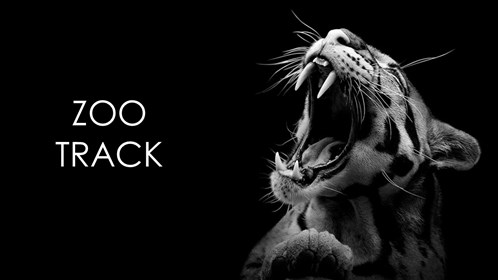
Zoo Pathology and Histology: Dr. Laura Bryan and Dr. Lauren Stranahan
Practice necropsy and learn about the anatomy of a number of zoo animals in this pathology and histology lab. Case studies focusing on the histology and pathology of zoo animals will be presented by our team of amazing pathologists. Learn how to collect samples and make pathological diagnoses of zoo animals! This lab is capped at 25 participants, 5 spots are reserved for Pathology Club members.
Zoo Animal Parasitology: Dr. Guilherme Verocai and Dr. Meriam Saleh
Students will get to use real zoo animal samples to perform parasitology diagnostic tests. Parasite case studies and examples from zoo animals will be shared by board certified veterinary parasitologists. Learn the diagnosis, treatement, and prevention of parasitic diseases in zoo animals! This lab is capped at 30 students, 5 spots are reserved for Parasitology Club members.
Zebra Immobilization: Dr. Alice Blue-McLendon
Students have the opportunity to be involved in the process of immobilizing a zebra at the Winnie Carter Wildlife Center. Students will help with the preparation and administration of immobilization drugs and learn about the management of the animal before, during, and after immobilization. They will also assist in performing a physical exam, collecting blood for bloodwork testing, and collecting a biospy sample for DNA. This lab is capped at 15 students.
